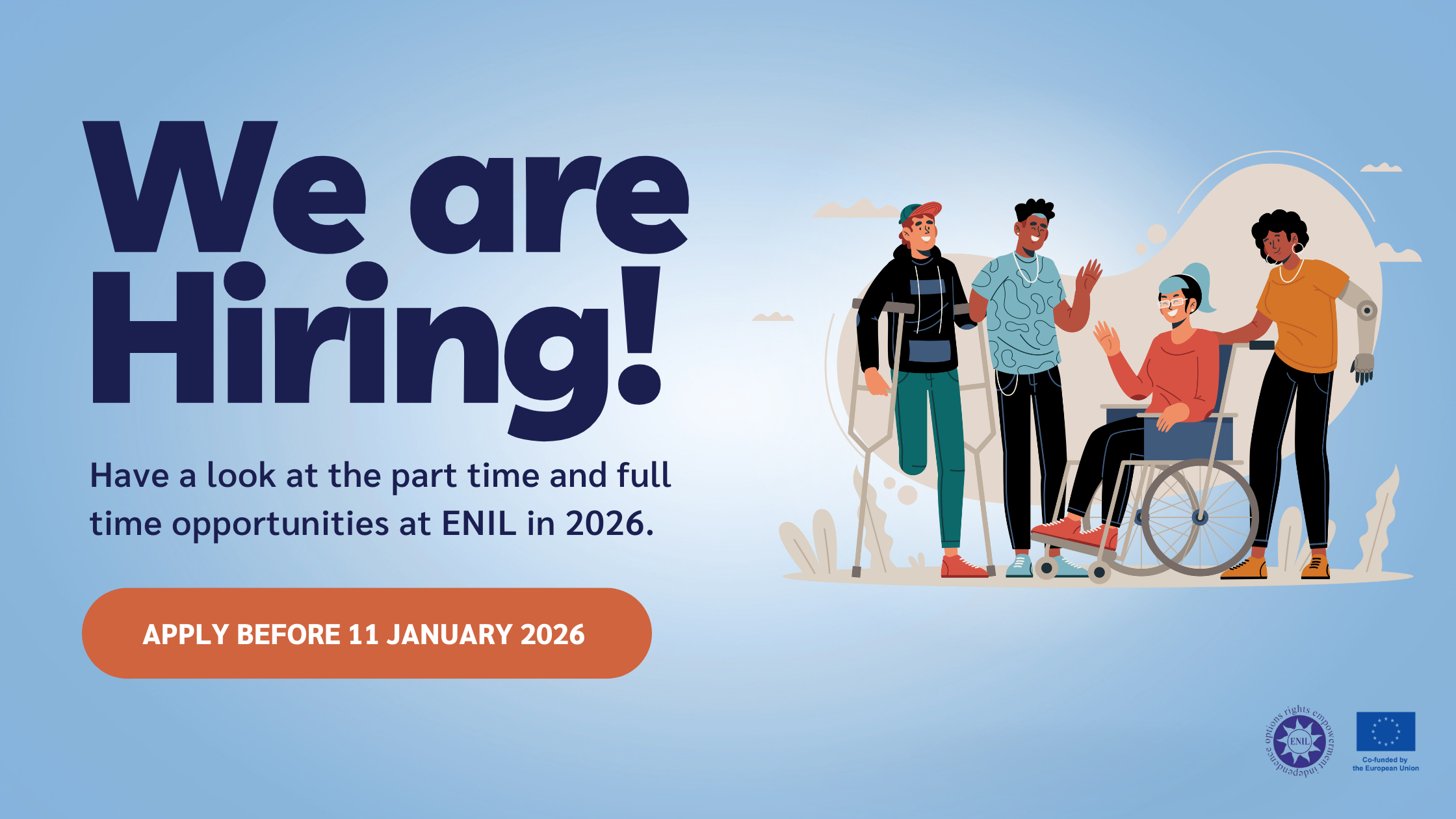Excitement about the European Disability Card is high and some are calling for celebrations. Unfortunately, all available evidence indicates that expectations are unjustified since barriers to the freedom of movement will not be tackled.
By Florian Sanden, florian.sanden@enil.eu
On the 6th of September the European Commission is going to publish the long-awaited legislation establishing a European Disability Card. The EU-wide disability card is causing much excitement in the disability community. During the evening reception connected to the meeting of the Disability Platform in July, the president of the European Disability Forum, Yannis Vardakastanis, announced there was great reason to celebrate because of this legislative project. Do we indeed have reason to celebrate? What can we expect?
Which benefits does a disability card entail?
Having a disability card in the country of origin of the author, Germany, provides access to considerable benefits designed to compensate for disadvantages occurring because of said disability. For example, it allows to retire from work and receive a pension earlier than other employees, it awards a special protection from dismissal at work or it gives access to more holiday days per year. You can find a more extensive list of compensations on this website.
European Commission plans for the European Disability Card
According to an impact assessment published by the European Commission in November 2022, the European Disability Card has the objective to “promote persons with disabilities´ rights to free movement and reside across the EU.” To this mean a disabled person moving from Belgium to Germany will automatically receive access to the same benefits as a holder of a disability card issued by German authorities?
Unfortunately, the answer is no. The European Commission impact assessment states unambiguously, that the European Disability Card will not replace national disability cards. It will leave the matter of access to social security and social protection untouched. The card will not affect disability recognition at the national level, based on national assessments, nor lead to any harmonization of disability assessment status or disability definition at EU level.
In 2017 8 EU Member States participated in a disability card pilot project, which had the objective to facilitate mutual recognition of disability. However, legally the Disability Card did not entail an EU recognition of disability status, only a confirmation that a person is recognized as disabled in the country of origin. The information provided by the Commission so far, strongly indicates that member states will retain full control over their disability recognition procedures. The European Disability Card will in no way oblige authorities of another country to recognize a disability status received in another country, meaning there will be no access to benefits. Of course, member states will be able to provide equal access to benefits voluntarily. How many will do that in the absence of mutual opening of benefit systems is doubtful.
ENIL contribution to the call for evidence and public consultation
In January 2023 the European Commission allowed stakeholders to present opinions about the future EU-Disability Card through a call for evidence and in May via a public consultation. ENIL submitted a contribution to both. In our contributions we presented the fact that the Treaty on the Functioning of the European Union states that all EU citizens have the ride to move and reside freely within the territory of the Member States. The UN CRPD guarantees non-discrimination of disabled people in article 5 and Liberty of Movement in article 18. The European Commission itself recognizes that our 87 million disabled citizens are seriously blocked from enjoying their freedom of movement while non-disabled people can. There is no doubt that serious discrimination is occurring, and treaties are being violated.
However, the discrimination occurring is two-fold. Already in 1971 EU Member States agreed that the Single Market, the Unions´ core project would not work without citizens being able to move between countries and the freedom of movement would not work without access to social security systems. Regulation No 1408/71 on the application of social security systems was adopted and later amended into regulation EC No 883/2004 and supplemented by regulation No 987/2009. Both regulations give non-disabled citizens, moving between countries, access to health insurance, unemployment benefits and pensions. Arguably, disabled citizens migrating have automatic access to these branches of the social security system too but not to the disability specific services which are vital. To solve the problem it is supposed to tackle, the European Disability Card would have to establish the principle that once a disability status is granted in one Member State, it is recognised in every Member State. The recognition of a disability status by another EU country must entail full access to rights and services, as available to holders of a nationally awarded disability status. This must include, for example, access to personal assistance, reasonable accommodations at work or in education, or protection under anti-discrimination legislation.
Perseverance
During the Disability Platform in July, the information provided demonstrated unambiguously that the European Commission will in no way change its initial position. When ENIL presented its position, this produced considerable confusion among the Commission officials in the room. The thought of true recognition of disability status appeared to be completely alien to them.
What can we expect?
The pilot project allowed holders of the European Disability Card preferential access to services in the areas of culture, leisure, sport and transport, when being in a cross-border context, meaning that card holders could receive a discount when buying a ticket. The pilot disability card had the same value as a student identity card. Accepting the Card was completely voluntary for service providers. Research by ENIL found that at least at the start of the pilot project, the European Disability Card was very unknown by service providers and that few recognised it. The situation might have improved between 2017 and 2023 but there is no information about that at this point.
Neither in the impact assessment, nor the Disability Platform, did the European Commission provide any evidence as to whether the conditions of the pilot project are to be modified. Will service providers be obliged to accept the European Disability Card or will recognition remain voluntary? Will there be attempts to raise awareness and encourage recognition by businesses, public providers and authorities through information campaigns?
Conclusion
Based on what we know, the European Disability Card will not be a game changer when it comes to the freedom of movement of disabled EU-citizens. The current discriminatory situation will endure. In a best-case scenario, the new card will make it easier to receive discounts when going to watch a football match, seeing a movie at the cinema or going to the theatre. This is admittedly a nice add-on. The added valued of the European Disability Card will most likely be mainly symbolic. If it is a reason to celebrate though, is up to you.



